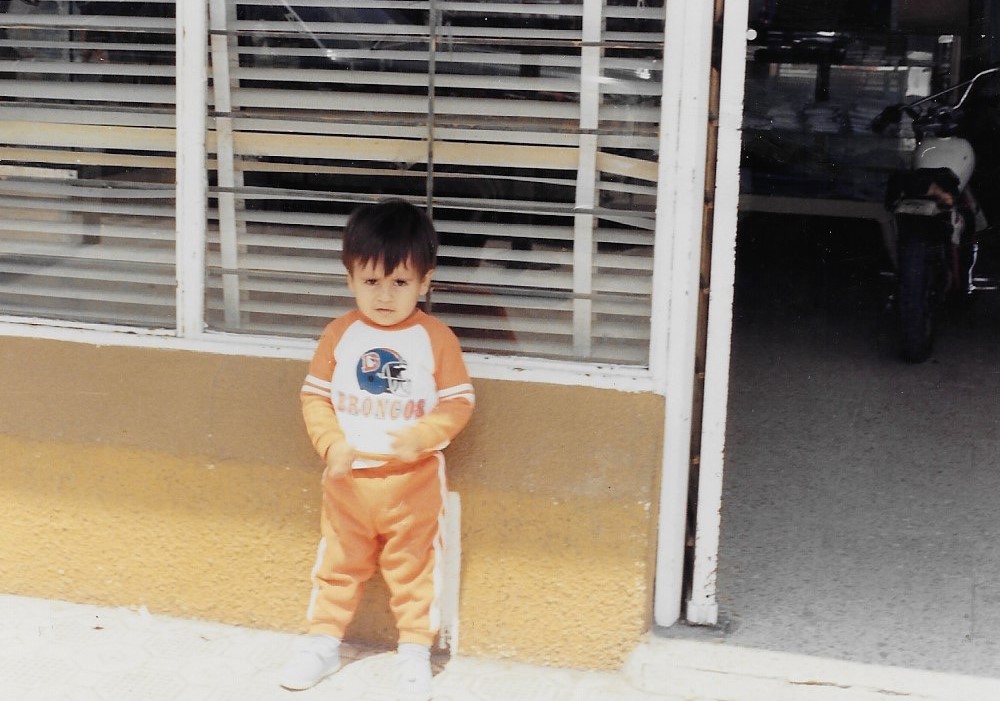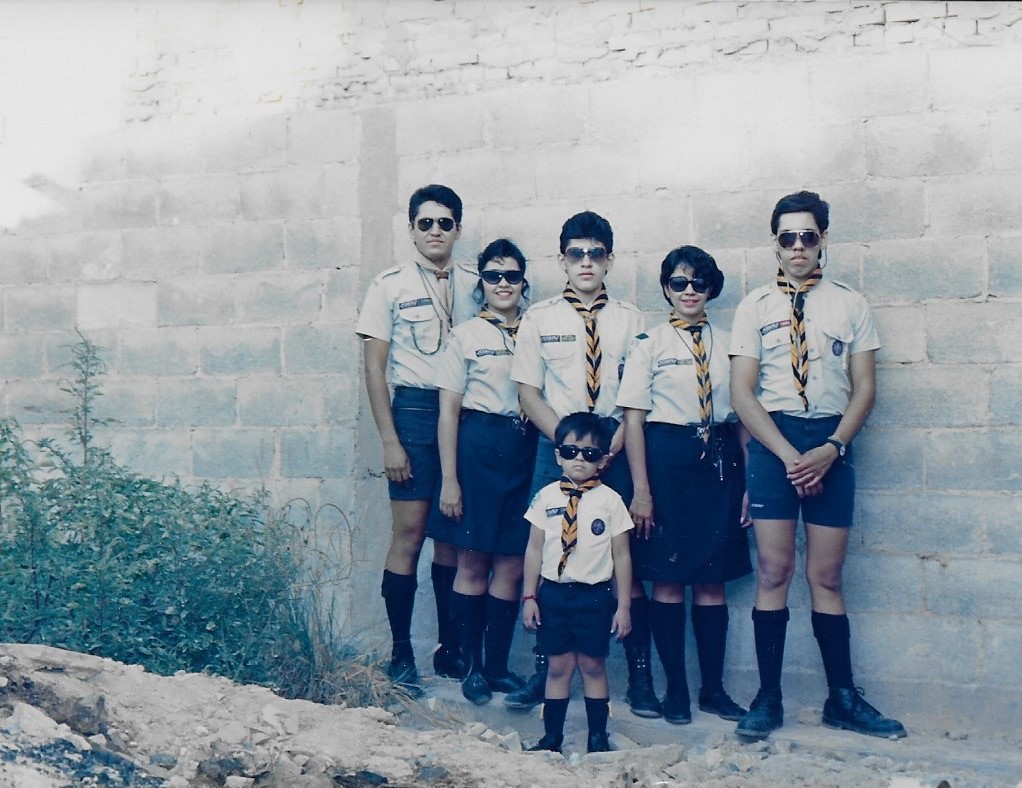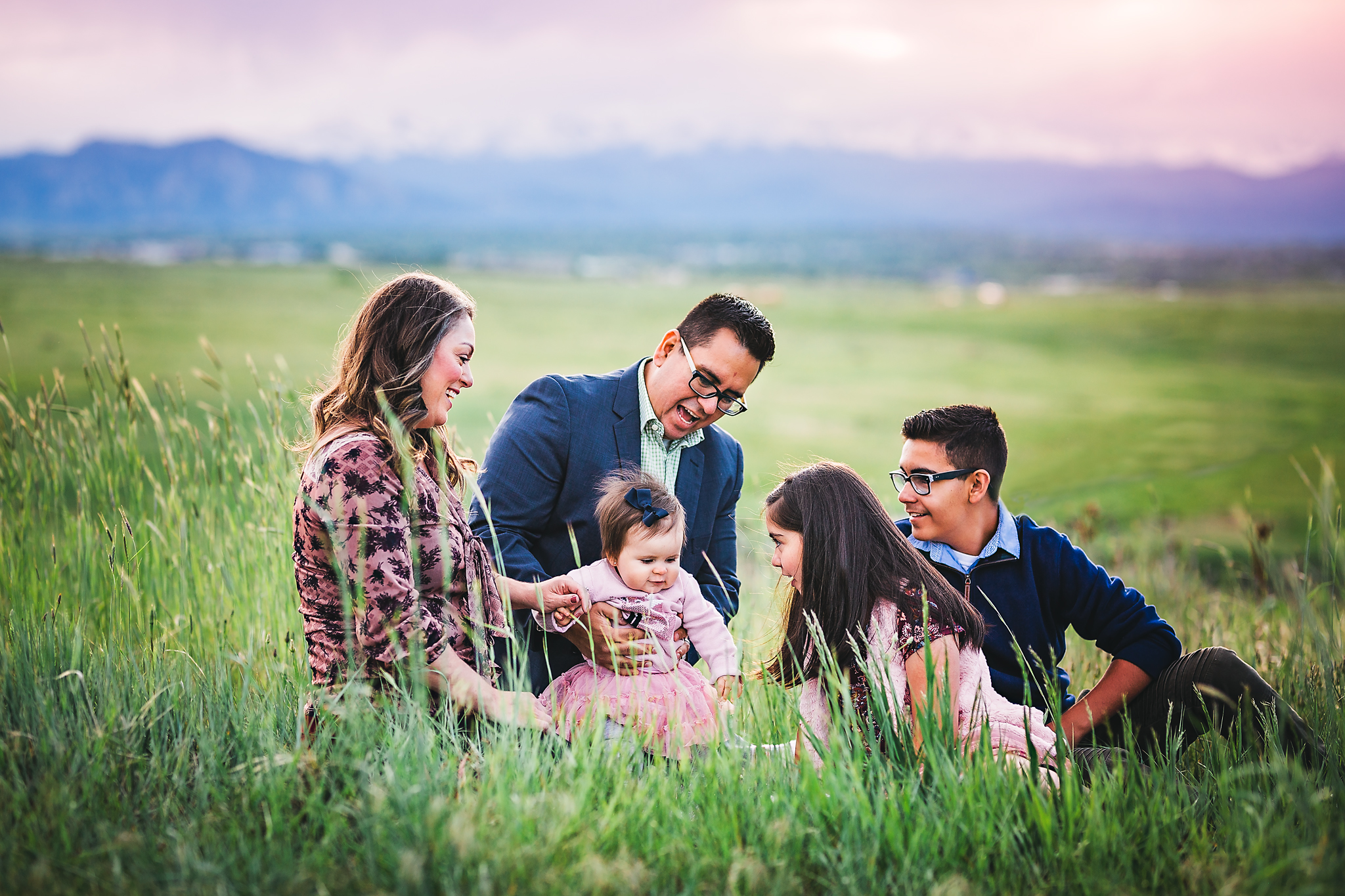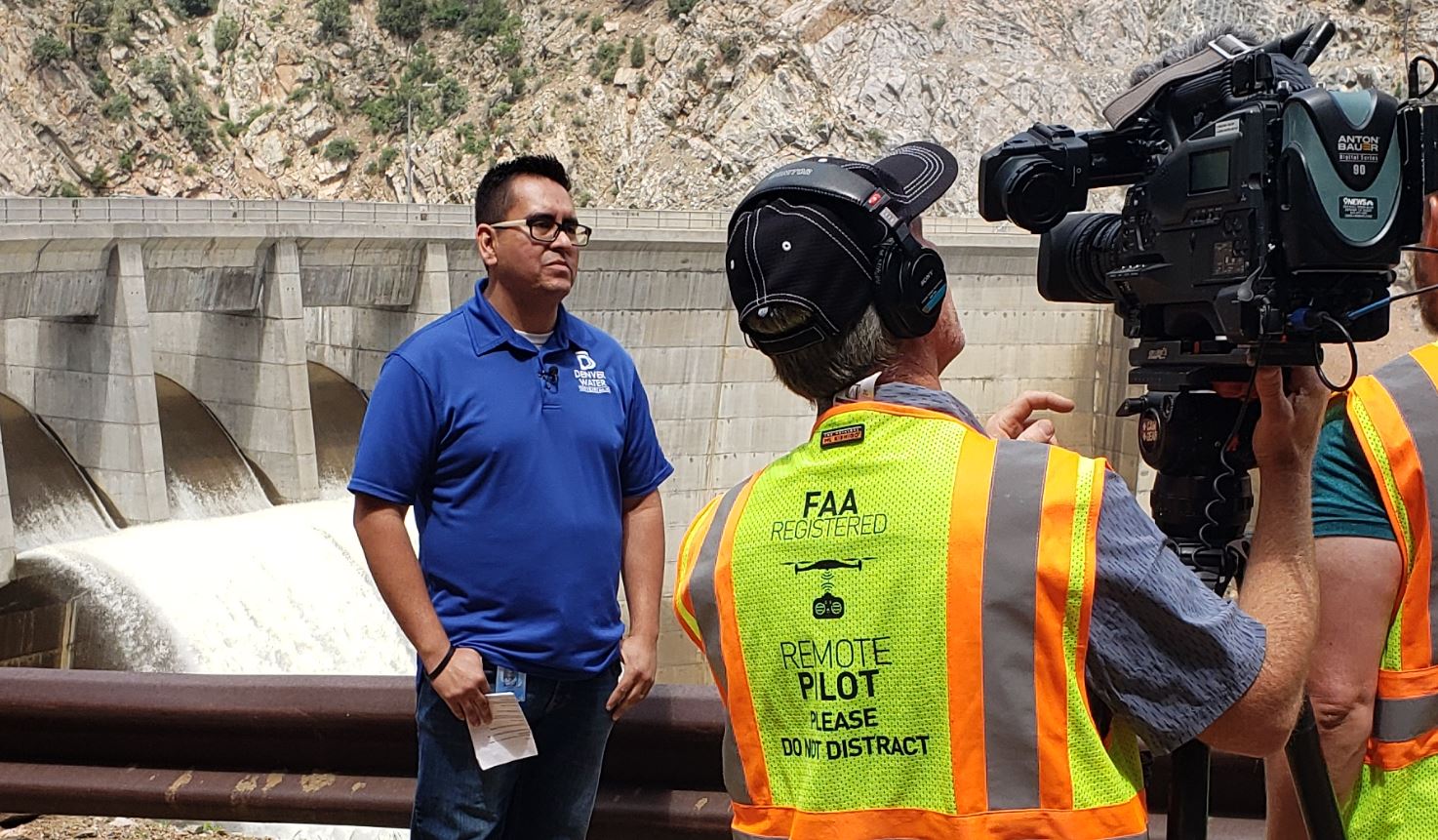
Spokesman’s family faced immigration hardships in search of a better life
Editor’s note: Denver Water celebrates and embraces the cultures around us that shape who we are today.
Sept. 15 through Oct. 15 is National Hispanic Heritage Month, a time to recognize the contributions of Hispanic and Latino Americans to our nation. Just like our customers, Denver Water employees have diverse backgrounds, and we’re proud of our rich cultural diversity that reflects the 1.4 million people we serve.
When it was time to start cleaning the mirrors on the nightclub dance floor, Jose Salas knew that shift, which started at 4 a.m., was almost over.
It was summertime, the time when Salas, then in elementary school, and his older siblings drove north across the border to visit their parents in Denver and work by their side before returning to Mexico in the fall.
Salas, a native of the Mexican state of Coahuila, which shares a border with Texas, immigrated to the United States when he was 12. Now a spokesman for Denver Water, Salas wouldn’t return to Mexico for nearly a decade, until after he had legal status as a permanent U.S. resident.
His father had been an accountant who owned a convenience store in Mexico, and his family lived comfortably. Salas attended a private school. His five older siblings had their eyes on college.
But in the 1980s, a severe financial crisis in Latin America — often called La Década Perdida or The Lost Decade ― crippled Mexico’s economy. Salas’ family needed money desperately.
Salas was 6 when his father left the family to find work in the United States.
He was 8 when his mother followed, leaving Salas behind to live with his five older brothers and sisters.
He was 12 when he filled a backpack with clothes, leaving his Ninja Turtles, Ghostbusters and other treasured items behind, and an older brother drove him 1,160 miles to Denver to join his parents.
“One of my favorite things is to see the Denver city lights on the horizon at night,” Salas said. “It reminds me of when I was a kid and saw Denver in the distance, and I’d know I was close to seeing my parents again.”
His parents had entered the country legally years before, driving over the Texas border without issue. But to continue making ends meet, his family overstayed their visitor permit.
“Now, people who don’t know my background will make negative remarks about undocumented immigrants, Mexicans or Hispanics and look at me and say, ‘Oh, but I’m not talking about you,’” Salas said.
“Some people have this idea that an undocumented immigrant is not educated or from a big city. But you are talking about me. You just don’t know it.”
Salas’ parents struggled those first few years, living at friends’ houses and in church basements, searching for work, and marking the months until the next summer’s visit from their children.
Salas’ memories of summer vacations in Denver are filled with 4 a.m. alarms, cleaning the trash cans in a nightclub before dawn, and sitting quietly for hours in a pantry while his mother worked another shift in a community kitchen. He sat in the pantry because the manager didn’t want to see children in the kitchen.
His family knew to keep quiet, stay out of trouble and never draw attention to themselves.
Salas remembers being told to “keep your head down and you’ll be OK.”
“There was a time when people like my family were safe in the shadows. I’m not sure that’s possible today,” he said.
Eventually his parents were able to send for Salas, their youngest. They bought a house and car, and they sent Salas to school, where he continued to learn and improve his English.
But as he approached high school graduation, Salas had second thoughts about his future in the United States. As a person in this country illegally, he couldn’t get a good job, obtain a driver’s license or graduate from college.
“I was so scared every time I saw a cop,” Salas said. “Driving anywhere was full of anxiety and fear. We paid taxes, we had no criminal record, but I was scared. We aren't bad people, but my options were limited and no future in sight.”
Still, his family continued to press for legal citizenship, spending thousands of dollars to navigate through several complicated applications, interviews and approvals.
By 2009 ― 12 years after his brother drove him to Denver ― Salas had become a U.S. citizen.
In 2015, he earned a bachelor’s degree in journalism from Metropolitan State University of Denver. He joined Denver Water in 2018. He and his wife, Shannon, have three children.
“My hope for all of my children is that they don’t go through discrimination or face comments that aren’t helpful,” Salas said.
“I’ve always hid behind my humor. I make a lot of jokes about being Mexican because that’s my way of getting ahead of it. If I beat you to it, you can’t hurt me.”
Jokes aside, Salas is tremendously proud of his Hispanic heritage.
“Family is everything to us,” Salas said. “I know it was tough for me to move here, but I can’t imagine how tough it was for my parents to leave us and for my brothers and sisters to care for me.”
There are so many regulations and requirements for someone to cross the border legally, Salas said, that it’s nearly impossible for anyone to do so.
His parents are now U.S. citizens. But four of his siblings and their families still live in Mexico.
In the nearly 30 years since Salas’ father left Mexico, the family has been reunited together only once, in 2004, for Salas’ wedding.
“We’ve had gatherings and holidays, but someone is always missing, a brother or a sister,” he said. “We haven’t been able to be together because someone is not able to go to one country or the other.”
Salas works hard to keep his Hispanic heritage alive with his three children and maintain a close relationship with his extended family, despite the border that separates them.
He speaks Spanish with his kids, builds an altar each Día de los Muertos to honor the deceased, and watches his father play traditional Mexican music on his guitar at local restaurants.
“Everyone has a past and a story to tell,” Salas said. “But we’re all in this together. We’re all human. We’re just looking for that chance to improve our life.”




